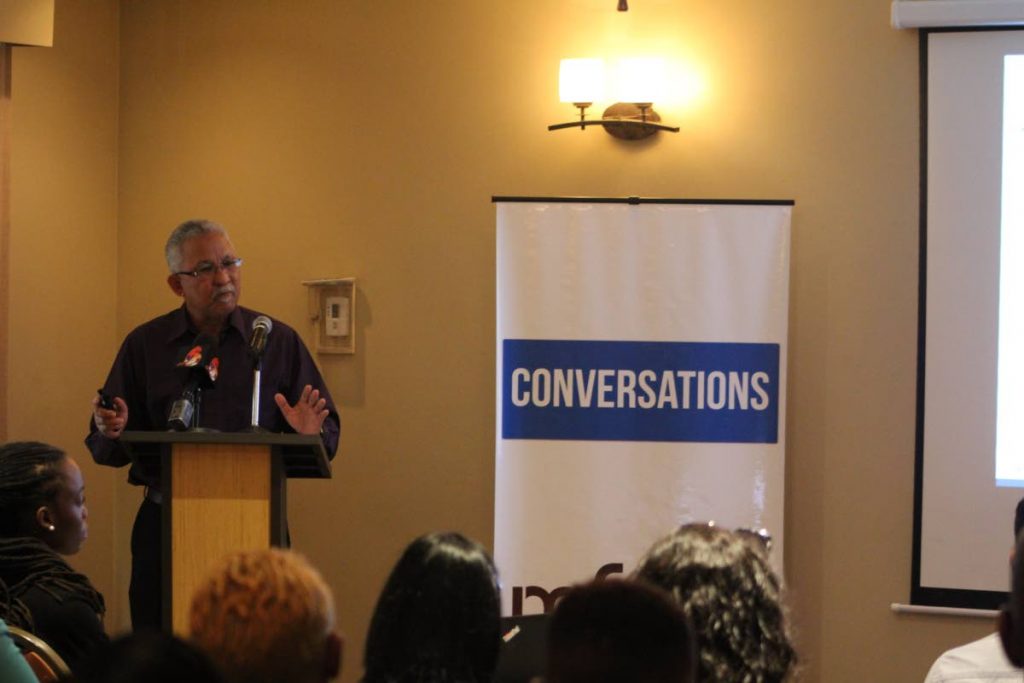Consumer behaviour linked to mindset

CARLA BRIDGLAL
The way consumers behave is no longer based solely on demographics but on mindset, and businesses that continue to operate along established assumptions risk losing out on the opportunities inherent in the current economic environment.
After careful analysis of the data in the recently released Market Facts and Opinions Consumer Economic Sentiment Report, this was MFO chairman, Noble Phillip’s, ultimate conclusion.
“The reality is that this is a changed behaviour from a sustained situation. If I am accustomed to having more and suddenly, I don’t, I enter a zone called relative deprivation. It’s not about what I have, but what I thought I should have that I do not have. This is why you will see someone with a high socioeconomic standing saying that they are just making ends meet, even if they drive an expensive car and can still afford a helper,” he said.
The survey was presented to MFO's clients on November 22, at the Courtyard Marriott, Invaders Bay, Port-of-Spain.
It was conducted in two waves in order to gauge a year-on-year sentiment. The first wave of interviews was conducted in November 2016 among 815 people, and the second, in June this year, among 614 people. MFO said the survey’s demographics were aligned to Census data, including households, age and gender, and was conducted throughout Trinidad and Tobago.
Phillip said when the company first undertook phase one of the survey in 2016, it had built it around the traditional demographic model. But after a review in 2017, when it did the second, comparative phase, MFO realised that the most influential factor driving consumer habits was the way people felt about themselves and their situations.
This reaction created a sense of budgets among consumers, with each segment prioritising their needs based on how and what they felt they could afford.
The new segments to consider then, are:
The Affluent — those living comfortably
The Heads Above Water — meeting basic needs with some extra cash
Out on a Limb — meeting basic expenses
The Struggler — not meeting basic expenses
Within these segments there are sub-divisions. The first group are those who, when they feel economic constraint, they will put the brakes on and stop everything, just sticking with the essentials — regardless of socioeconomic status. Business people then, needed to decide if they wanted to adapt to such an extreme reaction by also distilling their range of products into core options.
But such extremism catering solely for the first group means possibly excluding the people who are on pause.
“They are cautiously watching and making small adjustments, but life is okay, and they will continue, waiting. They may cut back but they are not going to stop (indulging),” Phillip said. These people are shifting their buying, choosing what they spend money on. They may spend money on a luxury item, but compromise on price by buying off-brand cleaning products.
Then there are those who are not going to stop the party. These are the young, urban people who live at home, and with two jobs — a day job and a side hustle. This group, mainly 35 years and under, made up about 40 per cent of the population, Phillip noted. The final segment was made up of those taking care of themselves, with the disposable income to spend.
“Each has a different perspective and business people have to understand that change that is taking place,” Phillip said.
Consumer sentiment has changed drastically over the last ten years, he said. A decade ago, 73 per cent of people felt they had moved ahead. Last year, that plummeted to 26 per cent, and in the last six months, it has fallen further to 19 per cent.
Business people need to be careful with how they react to changing times, keeping in mind consumer sentiment.
“The last time we had a recession in the 1980s, it lasted five years. It’s going to be longer this time around. It’s the long haul and if you choose to price aggressively, then you are going to force consumers into adjustments away from your product,” Phillip said.
The argument that volumes are down so increases in prices will help maintain margins are only opening the door for a fundamental shift in business.
“Lower cost options are laughed at or looked down now, but they will be able to capitalise on the moment. Aggressive pricing will allow consumers to make adjustments over time and they will not come back to your brand as easily when the economy improves because they have now changed the way they consume,” he said.
And that same low-cost brand can gradually make the shift to higher quality products — and prices — but will have maintained market share.
You also have to spend money to make money. Phillip advised not sacrificing the marketing and advertising budget just because the economy was down.
“In times like this you can steal market share if you understand what you have to do. It’s not about margin per unit but volume by margin. The cost to reach targets is changing; your share of voice is changing. You can run the promotions and the activations that the competition can’t. So, are you going to sink your business and hoard your cash, or spend some case to drive your share,” Phillip said.


Comments
"Consumer behaviour linked to mindset"